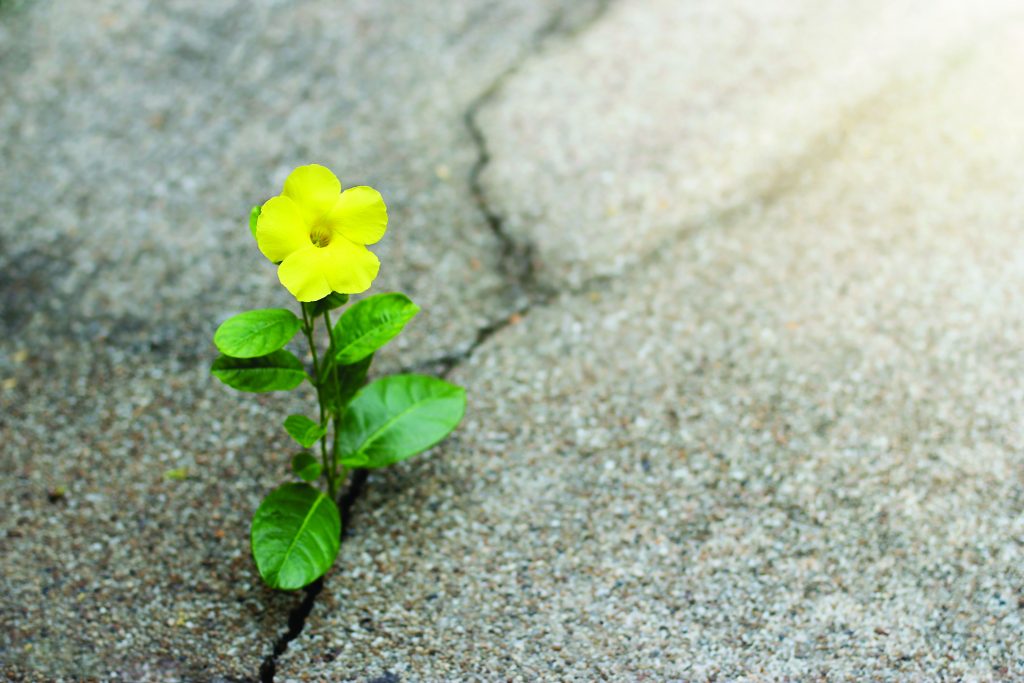
How to Adjust, Adapt and Embrace the New Normal
As we emerge cautiously from the safety of home into a world that seems comfortingly familiar yet irrefutably altered, a swirl of conflicting emotions is certain to be triggered. Relief and thankfulness may mingle uneasily with fear, anxiety and uncertainty, making it difficult to cope at times. Concierge psychologist Dr. Rebecca Johnson Osei, MA, PsyD, ABPP, shares her thoughtful perspective on navigating uncertain times with hope and optimism.
Q: What are some of the short- and long-term effects of the COVID-19 crisis on our mental health?
Dr. Johnson Osei: We’re seeing increases in anxiety and depression. Loneliness has also been a concern, due to social distancing, especially for older populations who may be more isolated from family and friends. Some are feeling grief, particularly those who weren’t able to say goodbye to a loved one, and survivor’s guilt, a common reaction to traumatic events. And most of us keenly miss the sense of control over our daily lives.
Q: How can we best manage these feelings?
Dr. Johnson Osei: Most importantly, allow yourself to experience all these emotions without guilt or judgment. They’re simply part of being human. While much of what we’re feeling may be remedied with time, be mindful and address your feelings now so they don’t become long-term issues. Also realize that you can regain control of your narrative by “reframing” your decisions. For example, instead of feeling forced to stay inside, frame it as a decision you made to protect your family. It changes your mindset when you realize that, ultimately, your behavior is your choice.
Q: Are there positive behaviors you’re seeing as a result of people learning to cope with unprecedented circumstances?
Dr. Johnson Osei: A number of really significant ones. People are gaining a renewed appreciation for the people and things they love. One-on-one time and simple human touch are valued so much more now. I imagine when friends and families reunite, there will be some really great long hugs! Being more aware of our mortality is also helping people cherish life, realizing it truly is a gift that can disappear in a second.
Being solitary and alone with our thoughts is a struggle for some, but it’s emotionally healthy to be able to entertain yourself and meet your own needs. For most Americans, coping with the discomfort of not being able to do what they want, when they want to do it, is a tough lesson, but it’s a good one to learn.
The need to connect has driven a much greater acceptance of technology than existed just a few months ago. There’s a growing willingness to think outside the box for new, ingenious ways to stay connected, and I believe this will carry on in our society well beyond the current crisis.
Q: What lessons learned from previous world crises can help guide us?
Dr. Johnson Osei: Think about how 9/11 fundamentally changed the way we travel. At first, it seemed untenable – the security lines were long and slow-moving, no one had the right size toiletries. It all feels completely normal now, and we know how to navigate the lines, pack our toiletries correctly, and wear shoes that slip on and off easily. Humans are incredibly resilient, and it’s why we’ve survived as a species. We don’t know what the new normal will look like, nor can we predict if this will go on for months or maybe years. But we do know we will adapt, and it will get easier.
Q: Any recommended strategies as we move to the next phase?
Dr. Johnson Osei: Go at the pace that’s right for you as an individual, even if it may not align with your city or state’s approach. Just because you can do something doesn’t mean you should. Be an outlier if wearing a mask or working from home makes you feel more comfortable.
Finally, it’s so important to remember: Life may be different, but this is not the end of the world we knew – it’s literally a new beginning.
The post Navigating Uncertain Times with Hope and Optimism appeared first on Specialdocs Consultants.
